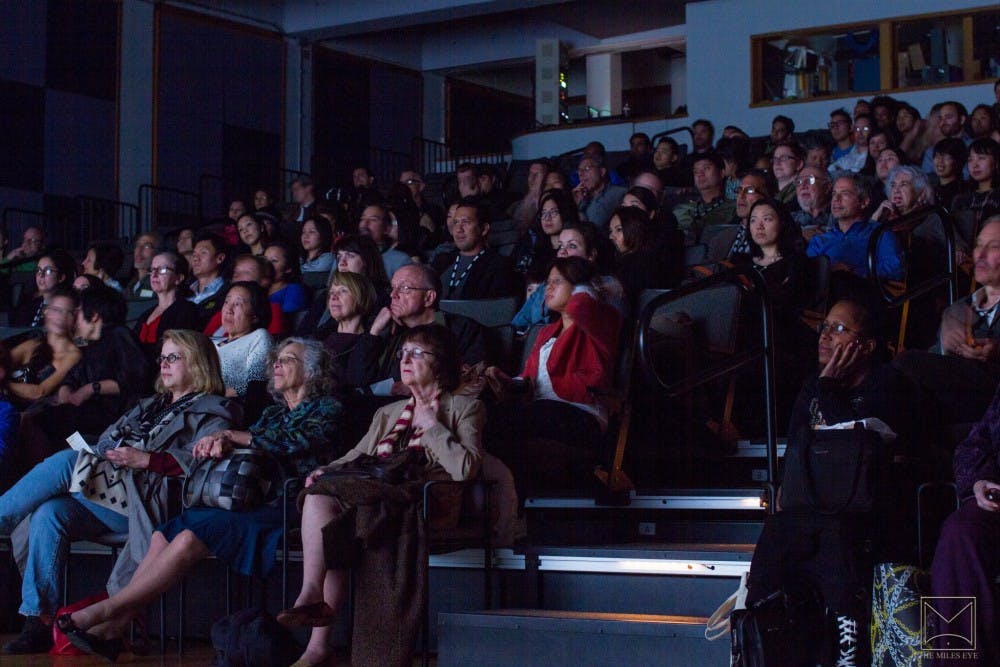This year was the 100th anniversary of filmmaker Ingmar Bergman’s birth. In his life, he made dozens of films and earned a place as one of the most accomplished filmmakers of all time, and in his honor, the Lightbox Film Center at the International House is holding a month–long series entitled “Autumn Sonata: An Ingmar Bergman Centennial Retrospective,” screening many of his most famous and beloved works on Thursdays and weekends in September. So hurry in before the month ends.
One hundred years is an incredibly long time in the movie world, and it might be hard to see why someone like Bergman, who started making films in the 1940s, is still popular today. Maybe you have a distaste for needlessly pretentious and artsy movies, or maybe you just get sleepy when a movie is black and white. The thing about Ingmar Bergman’s work is that whether you know everything about films or nothing, they’re still just as wonderful to behold—in fact, if you have never seen a classic movie before, Bergman’s work is the place you should start.
It is hard to explain the beauty of Bergman’s work in words. Yes, sometimes it is abstract, yes, sometimes it is long. But you don’t have to worry about not being able to comprehend it. You don’t understand one of his films, so much as you feel it, and it is all worth feeling. These are some of the films Lightbox has shown or is showing, but rest assured: if you’re going, you can’t go wrong.
Persona (1966)
This one is a heavy hitter. Persona, a psychological drama, has been called “unapologetically avant garde” and a “mountain” by reviewers, but it is a great story at its core. Bergman favorite Liv Ullmann plays a famous actress who suddenly stops speaking, and things go awry when the nurse tasked with rehabilitating her moves her to a remote cottage, where the lines between one woman and another—and between fantasy and reality—start to blur. If it sounds like a lot, it is—it deals with mental illness, homoeroticism, family, abortion, memory, and time—but it’s the predecessor of basically every psychodrama that came after, from Mulholland Drive to Black Swan. Go with a friend, because you’re going to need to talk it out after.
Cries and Whispers (1972)
A common theme in Bergman’s oeuvre is death, and Cries and Whispers is his greatest film on the subject. The film revolves around three sisters, one of whom is confined to her home and dying of cancer. Male characters float in and out of the story, but mostly, it’s about the sisters and one maid—reclining or keeping vigil in violently crimson rooms, struggling with death, their sexualities, and their shared capacity for hatred. In the confines of one house, without flashy action or gratuitous gore, Bergman depicts the depths that we, as humans, are capable of sinking to; it is humanity at its lowest, and you are left desperately searching for a light in the dark.
Scenes from A Marriage (1974)
Clocking in at almost three hours, Scenes from a Marriage is the longest work on this list. Part of the reason for its length is that Scenes was first a miniseries broadcast on Swedish television and cut down from six episodes for theatrical release, but another reason is that it ambitiously chronicles a failing relationship over the course of ten years. Scenes From A Marriage is far from perfect—a scene of domestic violence is upsetting and unsettling, and autobiographical elements of Bergman’s uncomfortable history with women pervade throughout. But for all its flaws, it remains one of the realest and rawest portraits of a relationship to ever appear on film—so much so that after it debuted in Sweden, many blamed it for a spike in divorce rates. Avoid this showing for a first date, but you will be better for having watched it.
Autumn Sonata (1978)
Friday, September 21, 7:00 p.m.
The last and titular film of the exhibition, Autumn Sonata is described on the Lightbox website as “the only collaboration between cinema’s two great Bergmans: Ingmar, the iconic director of The Seventh Seal, and Ingrid, the monumental star of Casablanca." With Bergman as a withholding piano star and Ullmann as her bitter adult daughter, Autumn Sonata is overflowing with masters of the craft working at the height of their powers. Unflinching, heavy, and (in a word) autumnal, this one is not to be missed.







